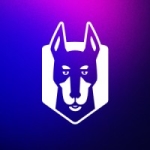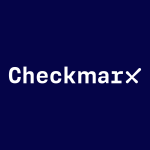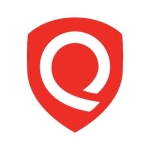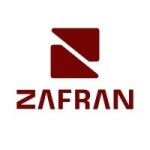What is our primary use case?
We use it to identify vulnerabilities in our cloud environment, including misconfiguration and other issues. More recently, we've used it to identify inactive resources that we can terminate to save money.
It also helps us automate some minor tasks that we don't want to do manually, such as forwarding issues to the appropriate teams. Wiz has various workflows to route the vulnerabilities it discovers to the right teams. We integrated it with ServiceNow, enabling us to send ServiceNow incidents to the teams. We can also send Azure DevOps work items to developers. We're evaluating Jira for some teams, and Wiz can also send tickets to Jira.
How has it helped my organization?
Wiz helps us reduce and manage our issues. Six months ago, we had no idea where we had problems in the cloud. We used another tool, but we still didn't know where most of the issues were. Wiz made it so easy to see from a high level.
Before adding any projects, it showed us all the open issues we needed to fix. It started with the big ones because Wiz groups the issues by control. For example, you can see you have 100 issues under one control, so you start by trying to fix that. We can fix these 100 issues across all accounts by fixing one control.
Maybe we can put in some guardrails or prevent people from doing something problematic using CI/CD. Wiz helps us identify issues, prioritize them, and determine which ones should be resolved globally.
If something can't be fixed at the highest level, Wiz can automatically send it to the appropriate teams. Wiz enabled us to define a structure for routing issues to people. We add a set of AWS accounts to a project and make them owners, so automation rules can be defined to send tickets to all project owners. That functionality helps us get the tool to operate.
Wiz is like a blind spot detector. You don't know what you don't know, so all I know now is what Wiz tells me. We don't leverage any native AWS features, so we rely solely on Wiz now. We're heavily in the cloud, but we still get our feet wet with it and ensure it's set up correctly.
Wiz was the first tool we used to determine what we should look at and fix. We are notified when people do things they shouldn't, and employees are taking more responsibility for that. People are more conscious about what they put in their AWS accounts.
Employees know they're being monitored and are responsible for it at the end of the day. Our InfoSec team will see it and ping them about it. They'll also see it when they get a ticket for the issue that they need to fix. It helps to create a secure-by-design mindset.
Addressing blind spots gives us peace of mind because we know that what we're doing makes sense. We can implement guardrails, understand why people continue to do things wrong and discover ways to prevent the problem from happening. It helps us develop best practices.
Wiz hasn't reduced the staff we need, but it has automated many tasks. It has built-in integration with other tools we can leverage by configuring automation rules. You don't need an external automation solution or a SOAR platform because you can do everything with Wiz's native tools.
It allowed us to decommission a cloud security tool that wasn't working well. Besides that, we haven't consolidated much because we don't have many other cloud tools. I expect a tool like Wiz could replace a traditional vulnerability scanner, like Rapid7. I prefer it over something like that. However, there will always be a use case for a traditional on-prem vault scanner for desktops, firewalls, and other hardware that doesn't have agents on it.
We still need an endpoint detection tool and a traditional vault scanner. But if we were using other cloud security tools like Divvy and Lacework, we could have consolidated both of them into this.
What is most valuable?
The automation roles are essential because we ultimately want to do less work and automate more. The dashboards are easy to read and visually pleasing. You can understand things quickly, which makes it easy for our other teams. The network and infrastructure teams don't know as much about security as we do, so it helps to have a tool that's accessible and nice to look at.
It's easy to see what needs to be fixed, which is crucial for the other teams. We are trying to adopt a comprehensive governance approach. The security team isn't necessarily responsible for fixing the problems, but we are responsible for ensuring they get fixed. We need to route things to the infrastructure team, and it's straightforward for them to find everything on the dashboard.
Wiz lets you group AWS accounts logically into projects. We have AWS accounts associated with an application, so we create a project named after that application, and the project owners will receive any related incidents. It's easy to identify who's responsible. It requires some configuration, but it's handy.
They have a security graph with a point-and-click interface, so you can click the resources you want to search for. If you aren't sure what you're looking for, you can click through. You open the little browser, and it says "EC2 instance." When you click on that, it populates several other options. You see that the EC2 instance has a network interface and click it. That has a public IP, so you can start granularly filtering down using the security graph.
I can use the security graph for threat hunting and identifying resources. I can click on a virtual machine and see it has been detected. I have AWS and VMware integrated so that I can see more than just our cloud environment. It provides visibility into the VMware environment. I can drill down further based on a specific project or subscription. I can see all the VMs in a particular project if I want. If I do that on our infrastructure project, it changes the results, and now I see around 800 VMs in this project.
It helps you understand the resources associated with individual projects. You can do that at the subscription level and narrow it down. It will show you that one project uses S3 buckets and another has VMs. You can determine if assets are active or inactive. It's a valuable tool.
They have a new inventory feature that allows you to detect and classify technologies. For example, let's say a Linux server has an FTP application installed, but we're not supposed to have those on our Linux servers. You can mark it as unwanted. Wiz has controls triggered when you classify something as an unwanted technology, so it generates incident reports for your projects based on what you've specified in the inventory. If I say FTP is undesirable, it will detect that on resources and send tickets to the appropriate teams notifying them to fix it.
I like the features for managing SLAs. You can define SLAs, set due dates, and use the security graph to see if any SLAs are due soon. I also think they do an excellent job with SSO implementation. Using SAML role mappings, we can integrate Wiz with our identity provider and set it up based on different groups. It's simpler to manage user access. We don't need to do all that manual stuff no one wants to do.
The ability to scan every layer without agents is a huge selling point because we're multi-agent. We are heading in that direction, so it's vital to have something that works that way. We use agents where necessary because we've got endpoint detection and response. We have a vulnerability scanner that isn't agent-based. Reducing the number of agents, we must maintain on servers or desktops is essential. They fall a bit short when it comes to performing on-demand scans. However, I don't think that's their goal.
I don't think Wiz wants people to come in and click "scan now." In some cases, having more frequent scanning than what they currently have would be helpful. It is a little confusing to understand which scanner does what. They have disk and data security scanners that scan buckets and a dynamic scanner that scans other things. I don't know which scanner is doing what or if they all follow the same schedule. I don't think we could use it if it weren't agentless.
What needs improvement?
The reporting isn't that great. They have executive summaries, but it's only a compliance report that maps all current issues to specific controls. Whether you look at one subscription or project, regardless of the size, you will get a multipage report on how the issues in that account map to that control. Our CSO isn't going to read through that. He won't filter that out or show that to his leadership and say, "Here's what we're doing." It isn't a helpful report. They're working on it, but it's a poor executive summary.
All the other reports look great when you try to create them. I can pull a report of issues for a specific project, but it's a CSV file with findings, which isn't helpful. I expect a slick visual summary that looks like what they have on the dashboard. They spend a lot of time making the dashboard easy to understand, but you can't get that information into a report for our executive leadership. We want to show them the trends and what we're doing. It's critical for our team to demonstrate the tool's value. At the end of the year, we have to go to a meeting and show management the progress we made this year. I can only do that by going into open issues, putting them all in notepad, and taking a couple of screenshots.
I would also like the dashboards to be customizable. They have excellent dashboards, but you can't create or customize them. At the same time, Wiz seems open to that feedback, and I think they're relatively new. They're growing fast and implementing new features quickly, so I hope this will be added soon.
A third issue is that we can't provide email notifications on connector status. Everything comes into Wiz through a connector. Our AWS environment is added as a connector, and there's no way to notify anyone if an issue is detected. We could wake up the next morning and not have any data from our AWS cloud environment because there was an issue with the connector, but no one would've known about it. I think that's something that needs to be fixed.
Wiz has room for improvement in terms of risk assessment. It has a severity meter with five levels: critical, high, medium, low, or informational. If I click on the highs, it sorts the issues by the control with the most total issues. They're all high, but it doesn't prioritize based on anything other than the number of issues that are impacted by that control. It's not a priority. It tells you you'll get the most bang for your buck if you fix this one. There's no risk score or anything like that.
For example, if a public-facing device has a significant vulnerability, it will consider that business context and label it "critical," but that's all it does. All the severity levels have the same weight. Wiz prioritizes well in terms of sorting the issues into broad categories. However, it doesn't prioritize those. I'm looking at all the highs right now, and I don't know if one of these is more impactful to fix than the other.
It helps to have an overview showing that 103 resources will be impacted if we fix this control. We can fix the control at the global level, put guardrails around it, and prevent the issue from happening in the future. You can start thinking that way, but it doesn't tell you this is more severe than other issues in the same severity category.
For how long have I used the solution?
We have been using Wiz since October 2022.
What do I think about the stability of the solution?
I've never seen Wiz go down. It sometimes loads slowly, but that hasn't happened recently.
What do I think about the scalability of the solution?
Wiz automatically scales with you. It's seamless.
How are customer service and support?
I rate Wiz support a nine out of ten. Originally, they offered support through a chat app on their website, which was awful. They recently changed to Zendesk, which has been so much better. We also have a Slack channel with some of our account team. They've been excellent.
How would you rate customer service and support?
Which solution did I use previously and why did I switch?
We used Lacework, but it couldn't operationalize like Wiz, and there were a lot of false positives. We found Wiz because we needed a replacement for Lacework that provided a better idea of our cloud environment.
Wiz does a better job than Lacework. It shows you what you need to fix on the front page. Lacework didn't do that as well, and it wasn't easy to automate. Once we knew what needed to be fixed in Lacework, it was difficult to forward the issue to the appropriate team. Wiz shows you what to fix and makes it easy to fix it.
How was the initial setup?
Setting up Wiz is as straightforward as you want it to be. It's easy to set up, but there's a lot to learn, and there will be more as Wiz continues to add features. Being there from the beginning was nice because I learned all about the scanners and how they worked.
Wiz is a SaaS solution connected to AWS, Azure, and our on-prem VMware environment in our data center. We worked with the Wiz team for the most part, but the platform is easy enough to do it yourself.
We already had Lacework, so we knew what we wanted to connect. We knew we wanted to connect our AWS and Azure cloud environments. We weren't thinking about VMware during our POC. We didn't care to add VMware. Our traditional vulnerability scanners would pick up the on-prem stuff, but they added it as an integration, so we decided to evaluate it.
I was primarily responsible for deploying the solution, but I'm not a cloud engineer, so we called on some cloud resources to assist. If it's a one-person IT team with access to the cloud environment, they could do that on their own. I don't have access to certain things in AWS, so I needed our cloud team, which is two people, but I only worked with one of them.
Some Wiz components require on-prem hardware. The VMware connector requires an agent-based server deployment. I deployed an EC2 instance with Docker on it, and each VMware vCenter environment requires its own agent. It was easy to set up, but some on-prem infrastructure is necessary to connect to them, get the information, and push it up to the cloud.
Though Wiz is a SaaS solution, it requires some maintenance on our side. If we have issues with the connectors, they must be fixed to ensure everything is coming in properly. If Wiz makes changes requiring additional permissions that impact the connectors or they release a new feature that requires additional permissions, we need to make some manual adjustments on our end.
What was our ROI?
We almost realized an ROI. The company only operationalized Wiz in January, even though we've had the tool for a while. We went through the POC. Then we tried to figure out the best method for implementing it and getting stuff out to our teams. I disappeared for a month because I was on paternity leave, so we've had maybe half a month where teams were addressing issues Wiz raised. Our issue count isn't increasing, and we continue to enable more rules and controls. People are starting to take accountability and proactively address issues they've seen in the ticketing system.
I think we're reaching the point where we'll see a return on investment, and we'll be there by the end of the year. We started at the cloud level and already started implementing some of the things Wiz recommended. It might not trigger an issue on the platform, but it's one of those best practices.
We realized value almost immediately, even during the POC. We plateaued a bit in terms of the ROI because we fixed some of the low-hanging fruit. We were like, "Okay, now what do we do?" We started creating accounts and putting them in projects. We set up the ticketing and tried to figure out where things were going. That took a few months to get going, and now we've enabled some of those. As time passes, we'll start to address some of these issues globally and hopefully implement the CI/CD stuff.
What's my experience with pricing, setup cost, and licensing?
Wiz is pretty expensive. It costs more than others in the market. For example, Lacework was half as much. We didn't get as much obviously, but it was half as much. The other platform was even less than Lacework, so Wiz is at the higher end of the market.
Which other solutions did I evaluate?
We looked at other tools like Ermetic. Rapid7 was actively pitching DivvyCloud to us. It's now called Insight Cloud SEC. We didn't evaluate that one though. We evaluated Ermetic but didn't do a POC. The company briefly tried them, and they didn't meet our expectations. Wiz is easier to use and navigate than the other solutions.
What other advice do I have?
I rate Wiz a nine out of ten. I recommend evaluating it with a full POC, but be prepared to set up connectors and go through the entire process. You'll know if you like the tool within a month. Try it if you have the budget.
If you're concerned about getting too many alerts from multiple solutions, I would say it depends on what you can consolidate. Not everything can be consolidated into Wiz. At the same time, Wiz mainly reports actual issues, and there isn't a lot of noise or false positives. Wiz will detect specific resources that might be exposing ports to the internet and trigger an issue on that. But that's by design. In some cases, you might have network resources that a firewall needs to have exposed to the internet in that way.
Wiz has accounted for everything, so you can configure it to ignore particular issues for a given resource. They've implemented a few ways to work around issues you don't want to address so you can clear from the interface and get people to focus on what's important.
Which deployment model are you using for this solution?
Public Cloud
If public cloud, private cloud, or hybrid cloud, which cloud provider do you use?
Amazon Web Services (AWS)
Disclosure: PeerSpot contacted the reviewer to collect the review and to validate authenticity. The reviewer was referred by the vendor, but the review is not subject to editing or approval by the vendor.





















